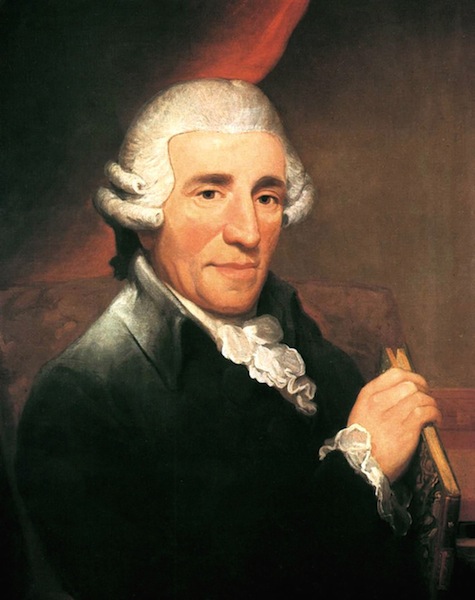Cleveland Orchestra dispels the winter chill with a warm-hearted “Seasons”

Franz Joseph Haydn’s “The Seasons” was performed by the Cleveland Orchestra Wednesday night at Carnegie Hall.
The Cleveland Orchestra finished up its brief Carnegie Hall visit Wednesday night. Following a concert of Mahler and a new premiere by Johannes Maria Staud on Tuesday, they took an entirely different course with a rewarding performance of Haydn’s The Seasons.
Franz Welser-Möst, Cleveland’s Music Director for more than fifteen years now, has earned a reputation as a fairly staid interpreter—in a high Classical piece like this one, that wasn’t much of a hindrance. His attention to clarity and to color brought the piece into focus, especially in the crisp fugues, where a listener could almost see the interlocking lines weaving in and out of each other. A more muscular approach to articulation might have helped sharpen some of the contrasts in Haydn’s score, but on the whole the orchestra played with full, vibrant sound.
The many pictorial effects throughout the piece were accomplished brilliantly, starting with the bird-like tittering of the strings in the energetic opening of Spring. Tender sighs in the strings introduced the tenor aria “Dem Druck erlieget,” and brass showed enormous polish, with marvelous hunting calls from the horns in the Chorus of Peasants and Hunters.
The Cleveland Orchestra has the rare luxury of fielding its own choir, currently under acting director Lisa Wong. Their sound shows a lovely warmth, rather than the chilly brightness one hears with many symphonic choirs, but they sacrifice nothing in volume or depth of tone. They beamed in glorious exaltation of the sun in Summer’s “Sie steigt herauf.”
In part thanks to the superb chorus, many of the highlights of the performance came in larger scenes, such as “Jucche! Jucche!,” the riotous harvest feast that ends Autumn. Festive spirit mixed with rowdy humor, as the strings and sopranos mimicked the sounds of various instruments, such as hurdy-gurdies and bagpipes. Especially convincing was the thunderstorm in Summer, beginning with a flash of lightning from the flutes, while the chorus supplied the wailing winds and strings the beating rain. Welser-Möst impressed by executing tricky, full-orchestra hairpins that added to the thrilling sense of turmoil.
The libretto by Gottfried van Swieten for the four-part oratorio, sung in its original German, provides for three vocal soloists: Simon, a farmer; Hanne, his daughter; and Lucas, a young worker. Rather than a real narrative through the piece, the text offers a series of events depicting rustic life in each of the four seasons.
Of the trio, the standout by far was the Hanne of Golda Schultz, the South African soprano who made her debut at the Metropolitan Opera as Pamina this fall. She brought a winning, bright-eyed stage presence to match the irresistible energy of her voice. Always lively, occasionally hardening to achieve a more penetrating quality, her soprano is at its most affecting when she lets it be cool and liquid. She can spin off a line of pure silk with ease, and showed perfect control in Wednesday’s performance, delicately and precisely crafting her phrases. Schultz is a master of using her voice to a variety of ends in her vocal characterizations, playfully adding in little glissandi and glottal friction in Winter’s “Ein Mädchen, das auf Ehre heit,” a cheeky vignette of a coy young lady rebuffing a handsy lord.
Less successful was the fairly generic tenor of Maximilian Schmitt as Lucas. He did well enough in some of the arias, achieving an easy flow in his phrasing; there’s not much body on the voice, though, and in his lower range there was barely tone at all. Bass-baritone Christian Van Horn, Wednesday’s Simon, was visibly coughing and clearing his throat throughout the performance, but he soldiered on, weighty and woolen. He was most effective when simply able to declaim with full voice, as at the beginning of the final trio and chorus, “Dann bricht der grosse Morgen an.”






